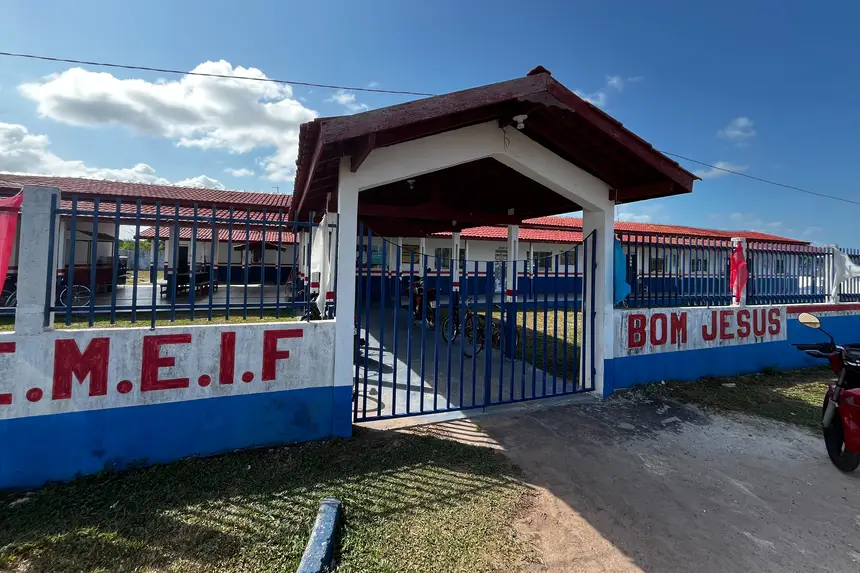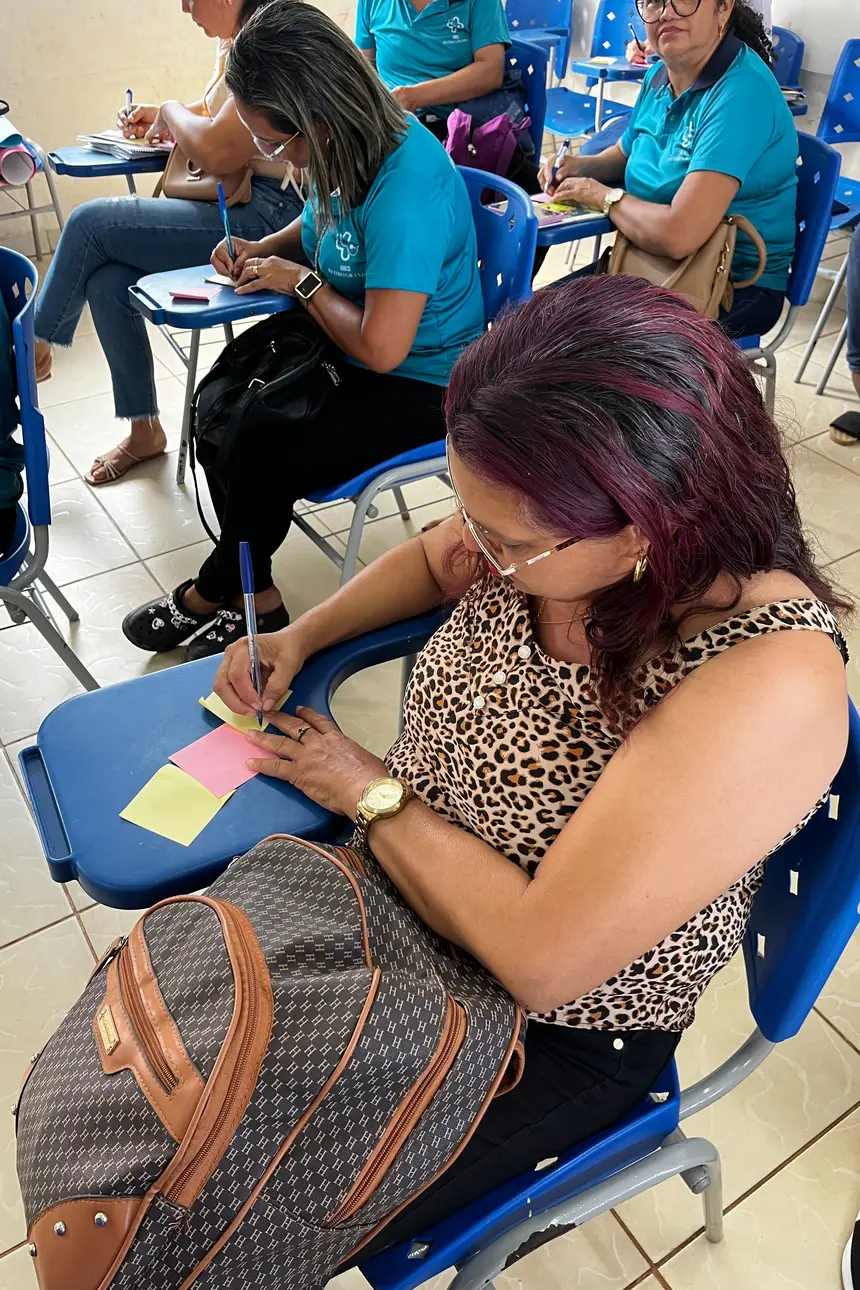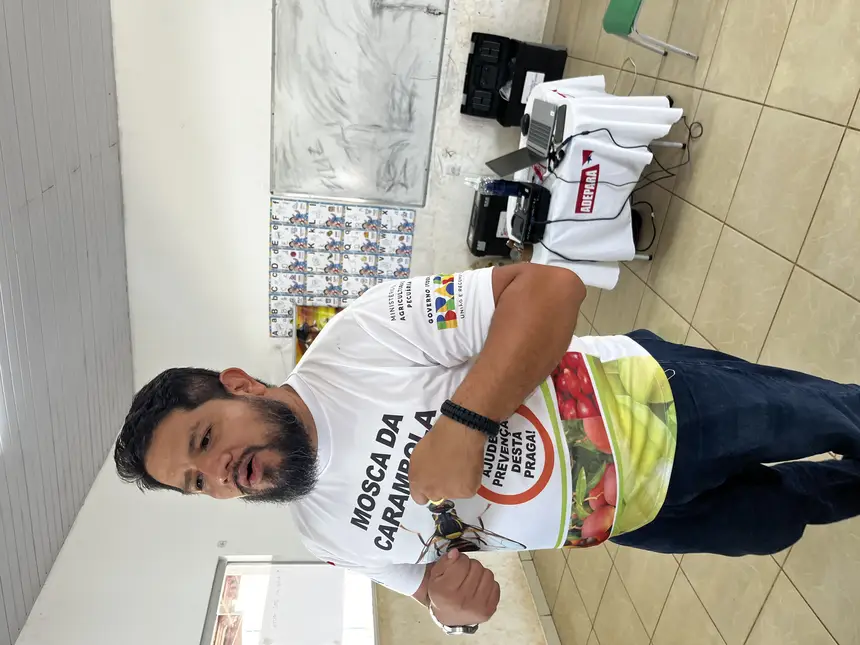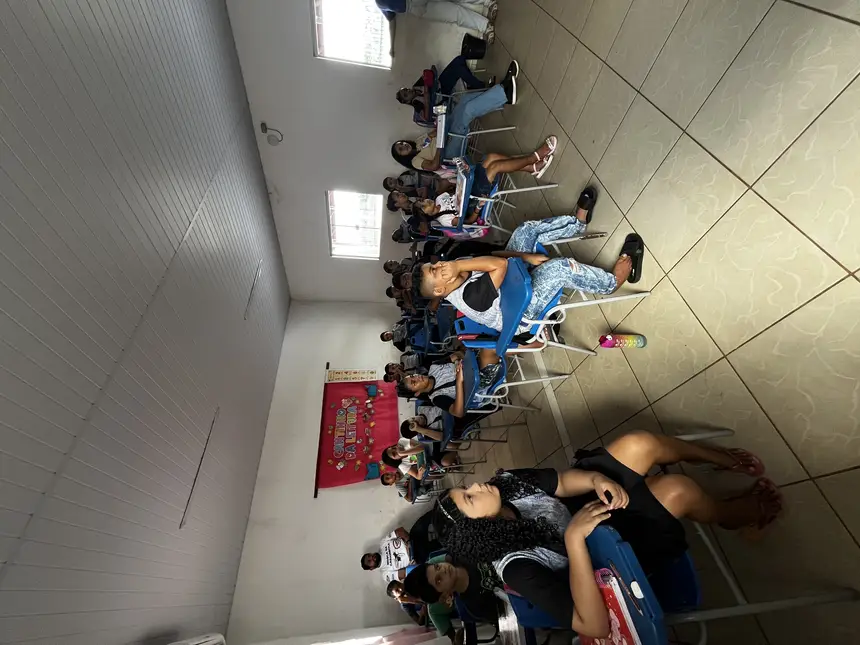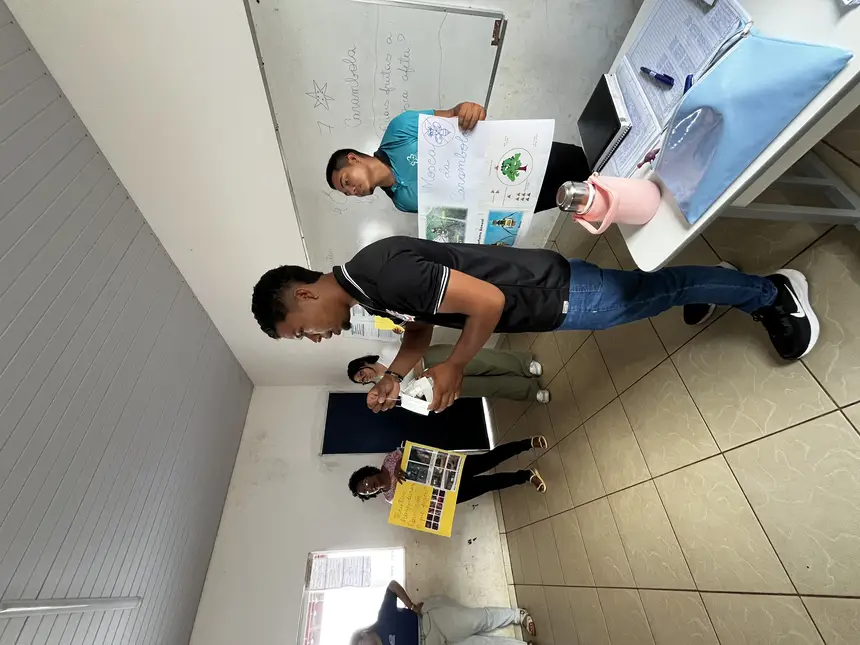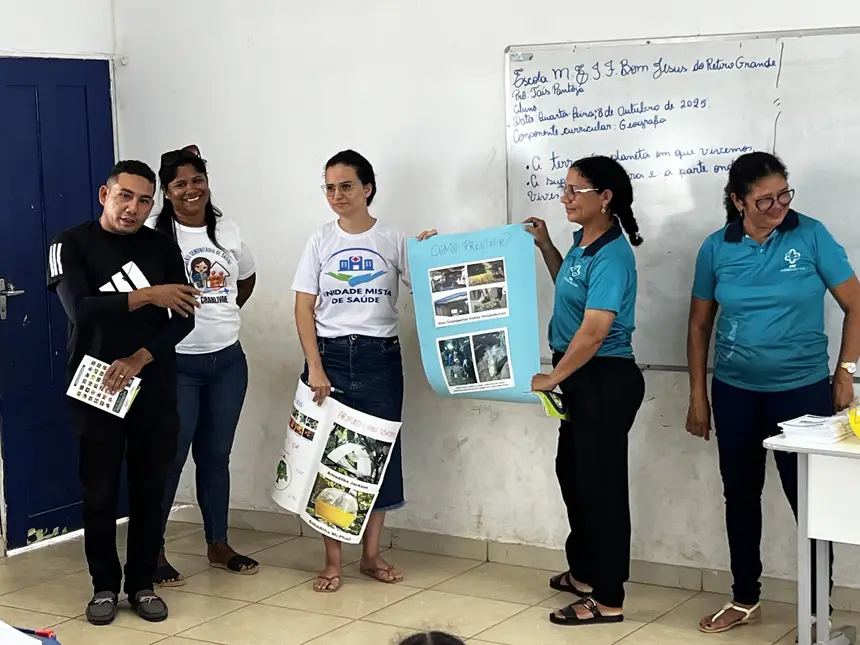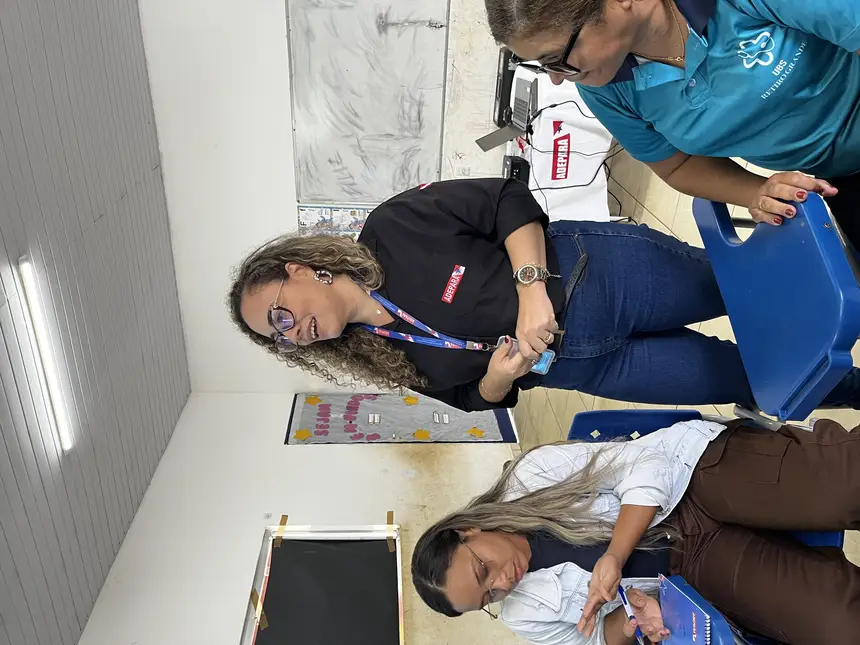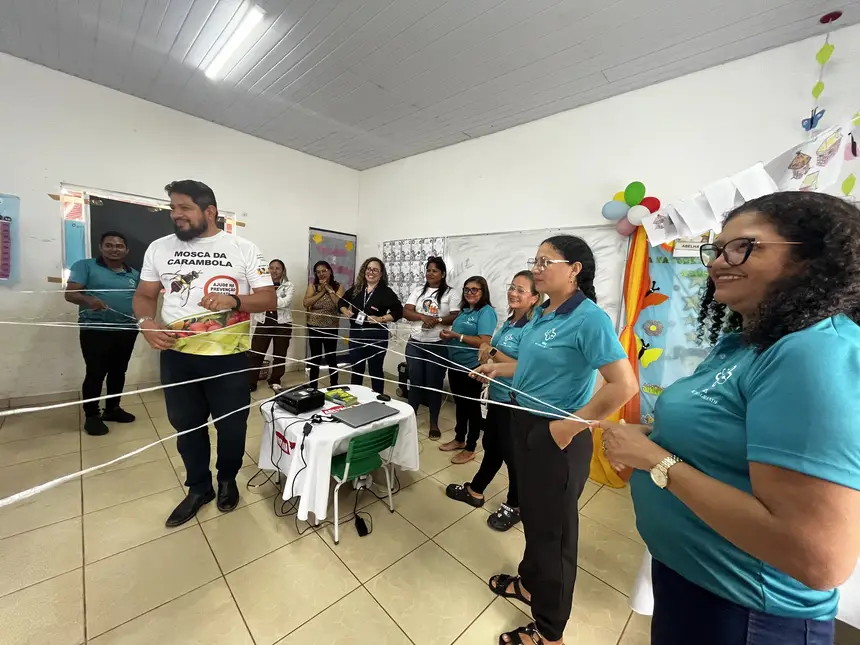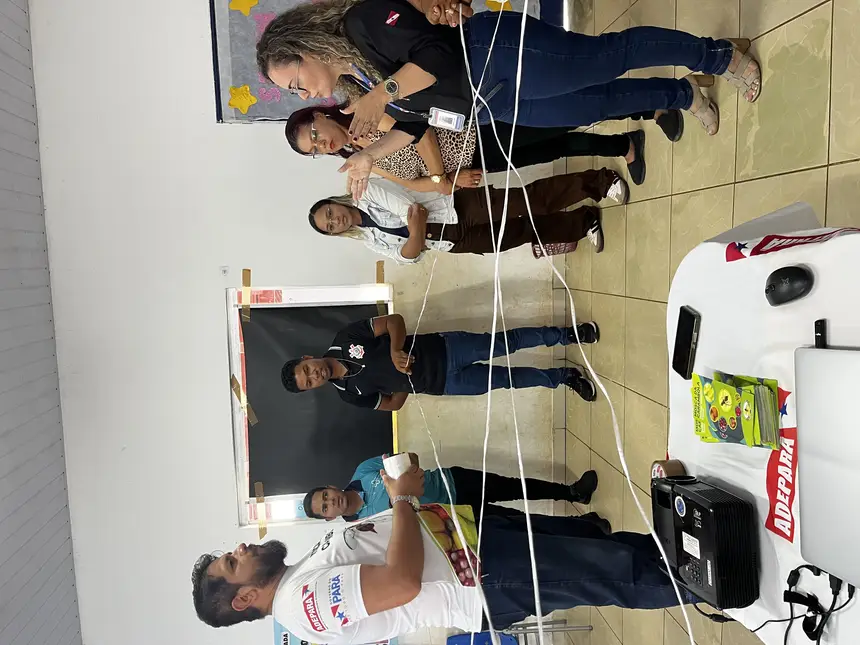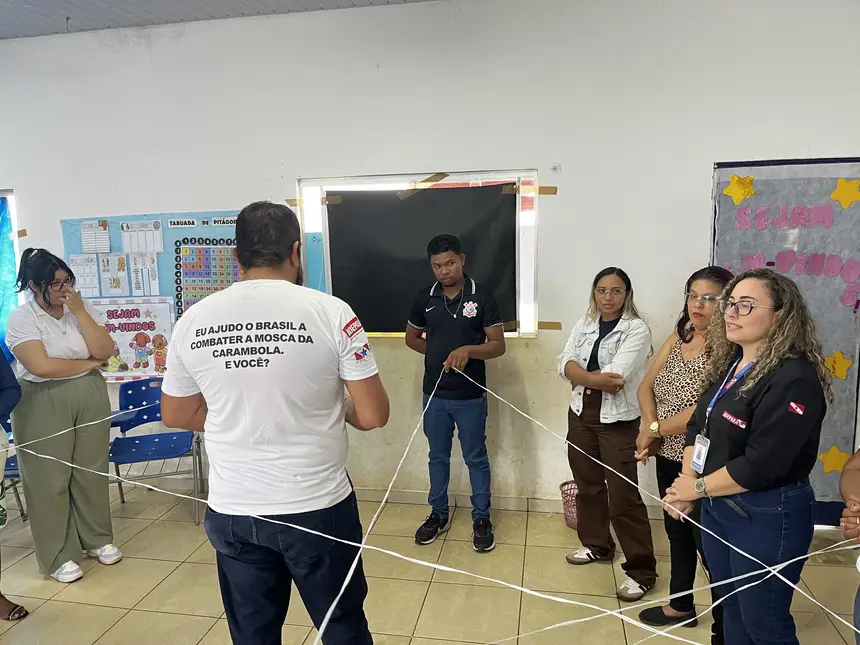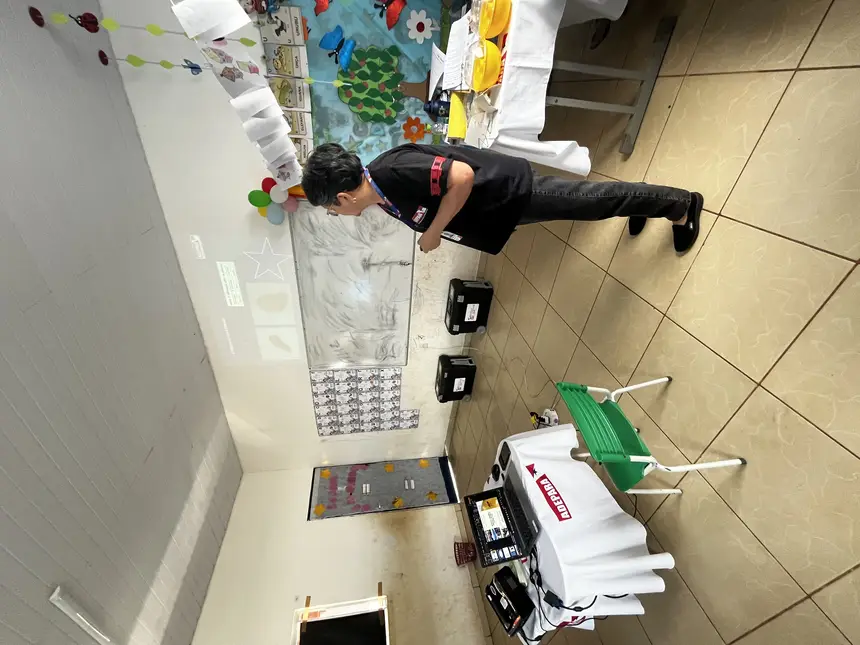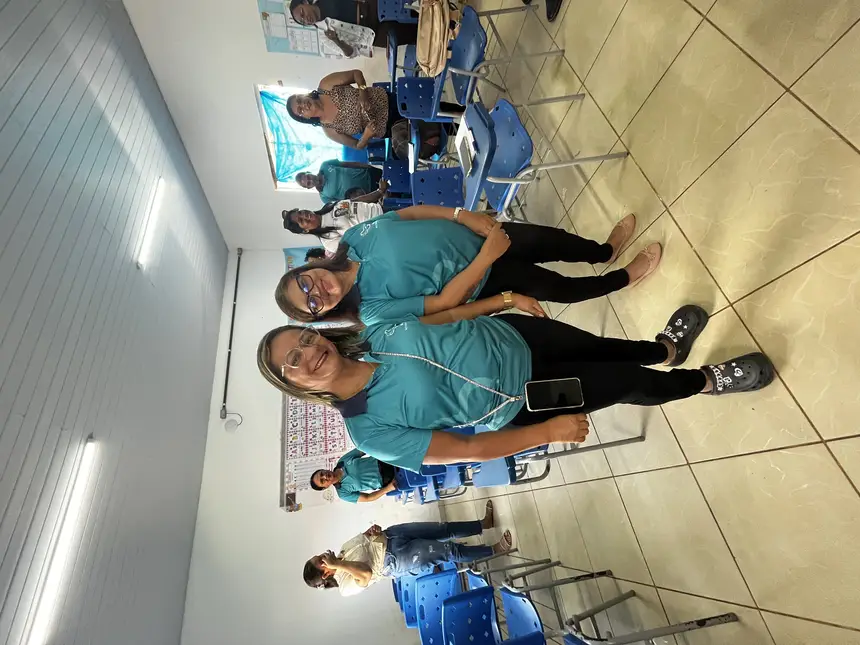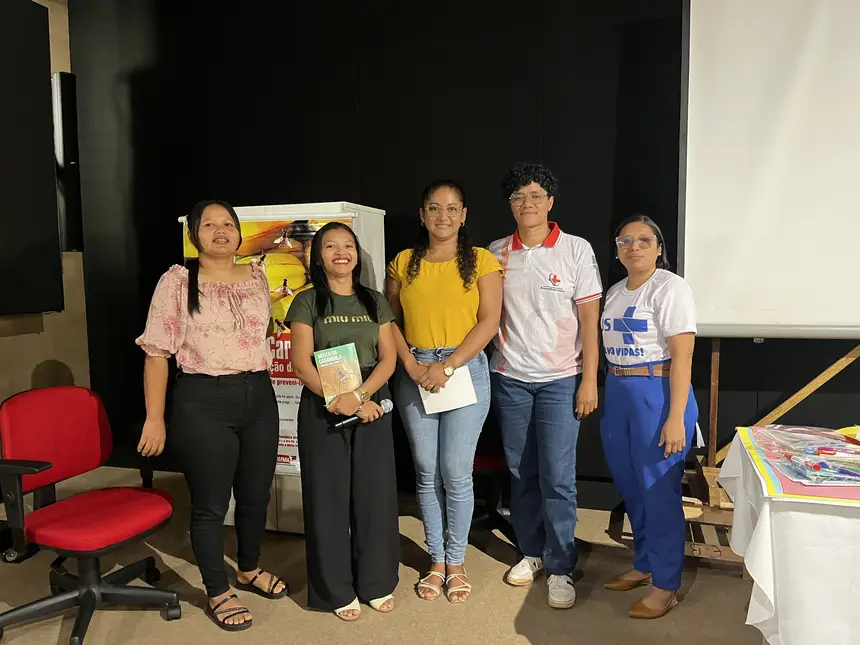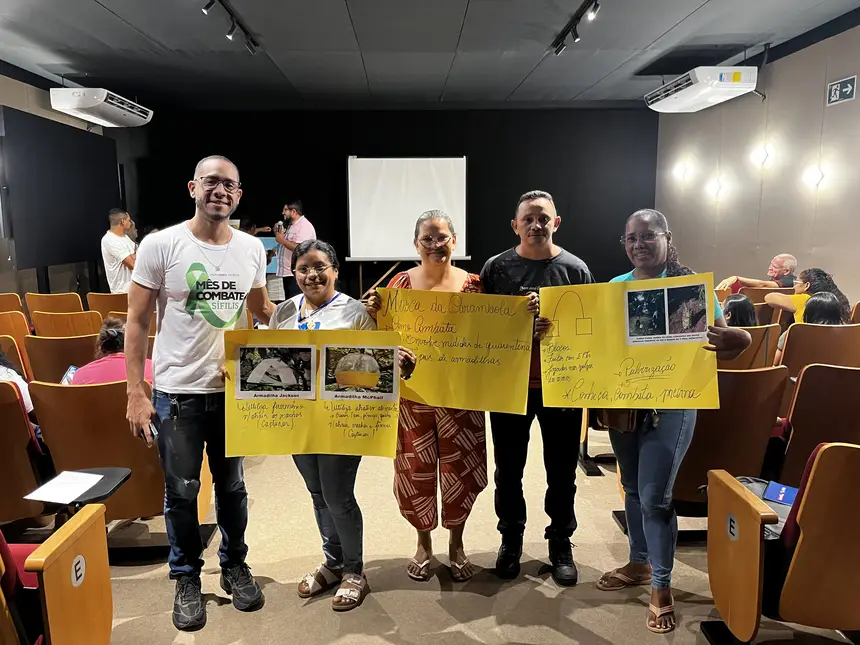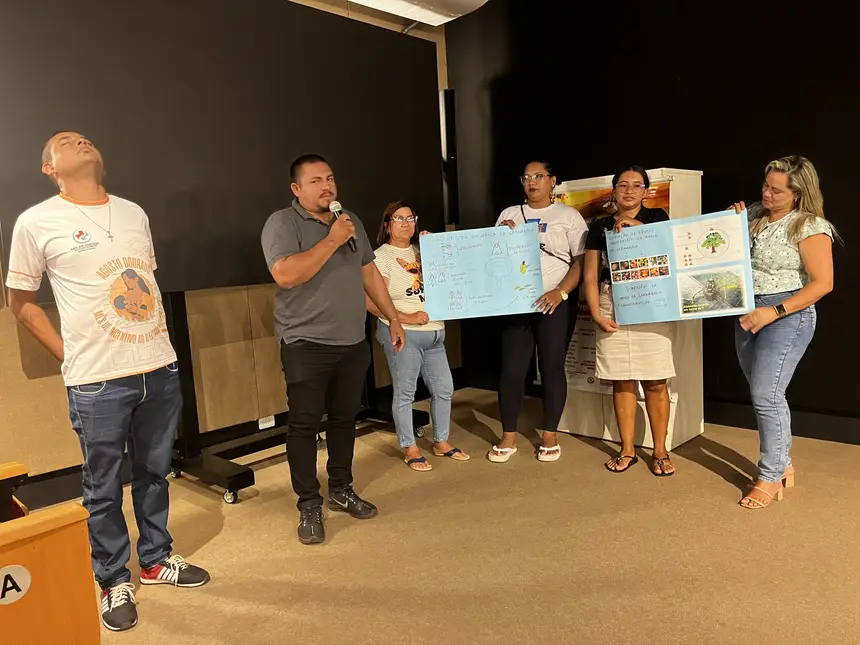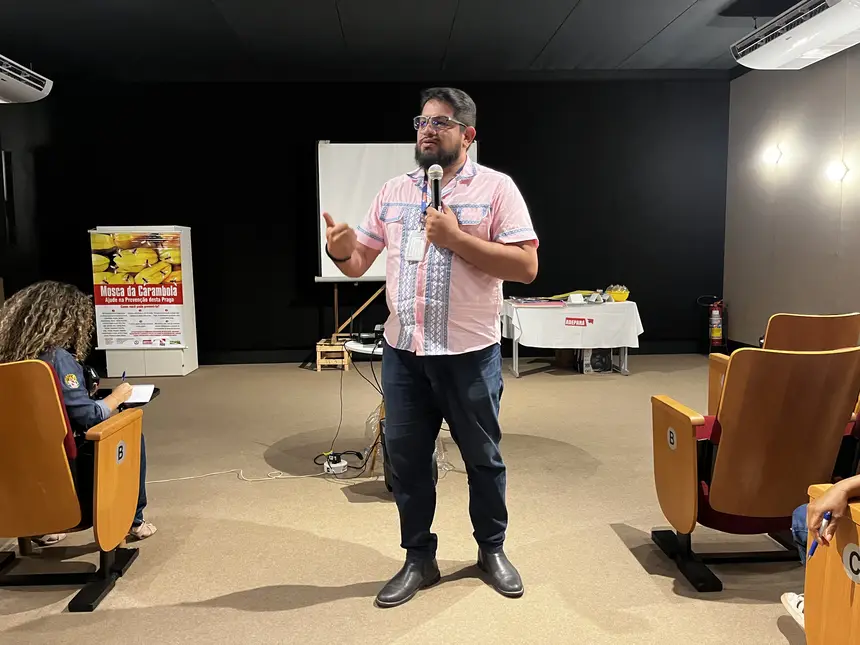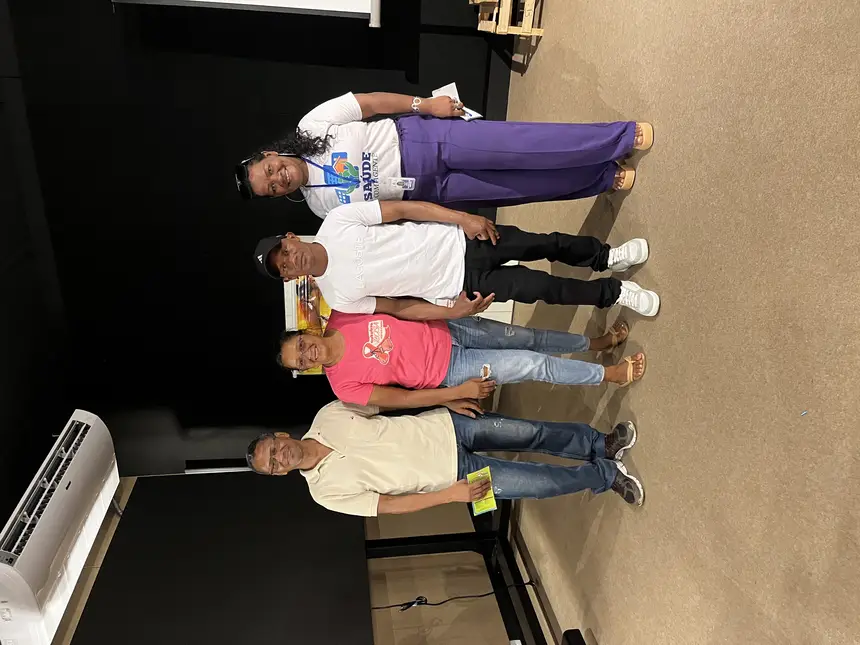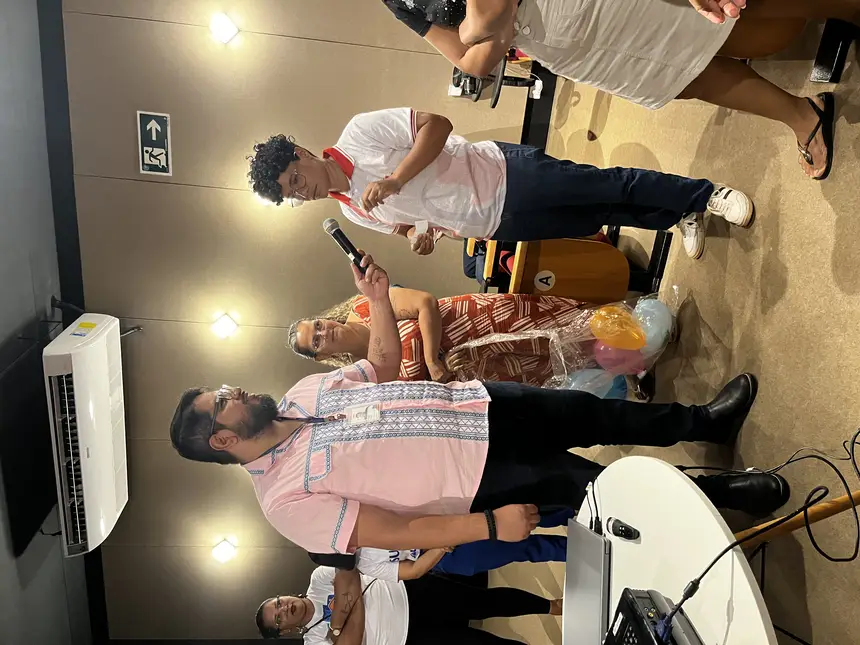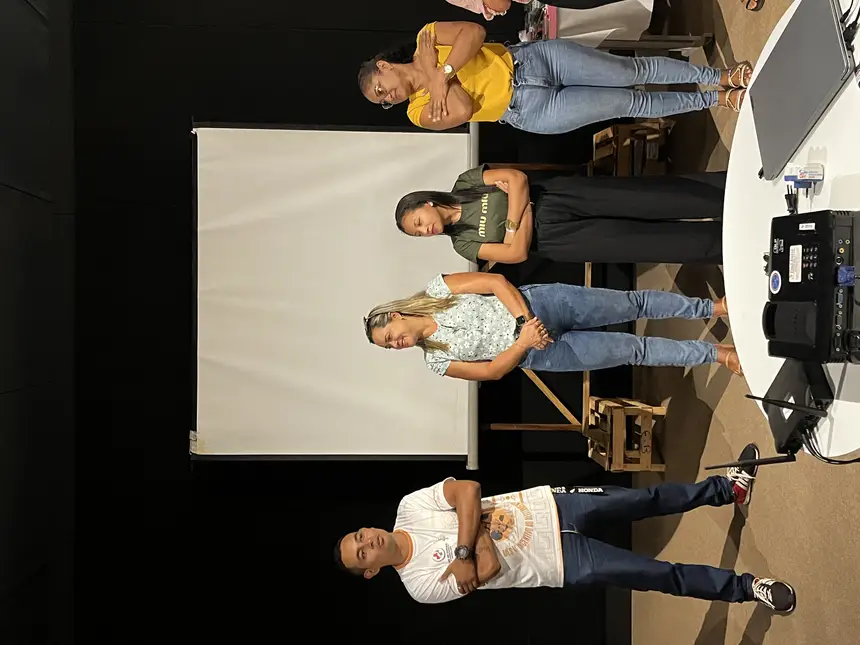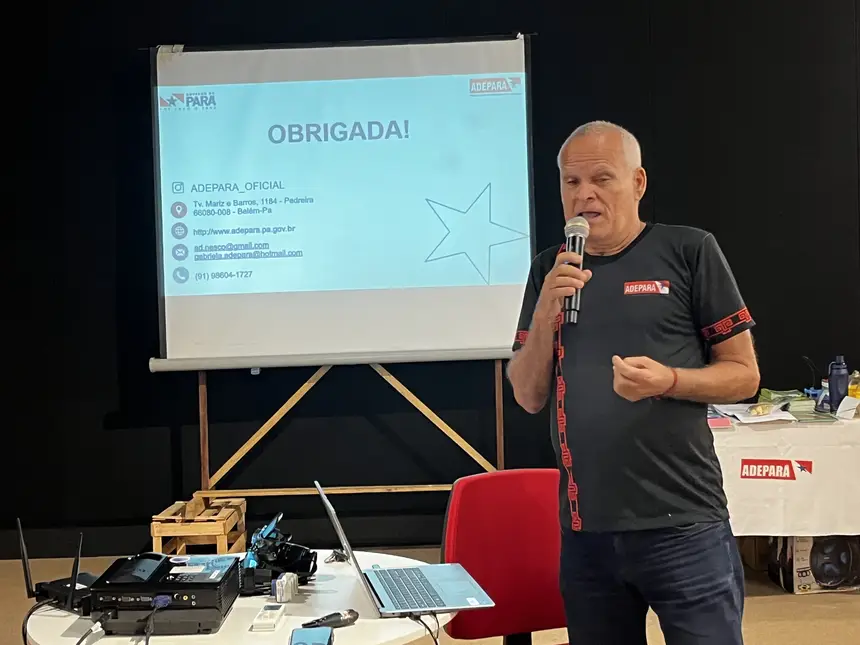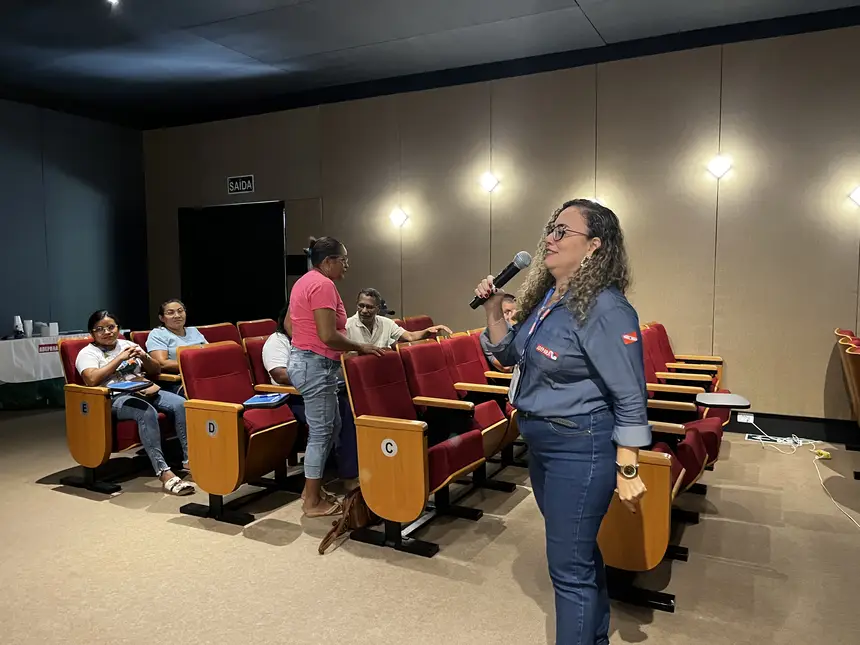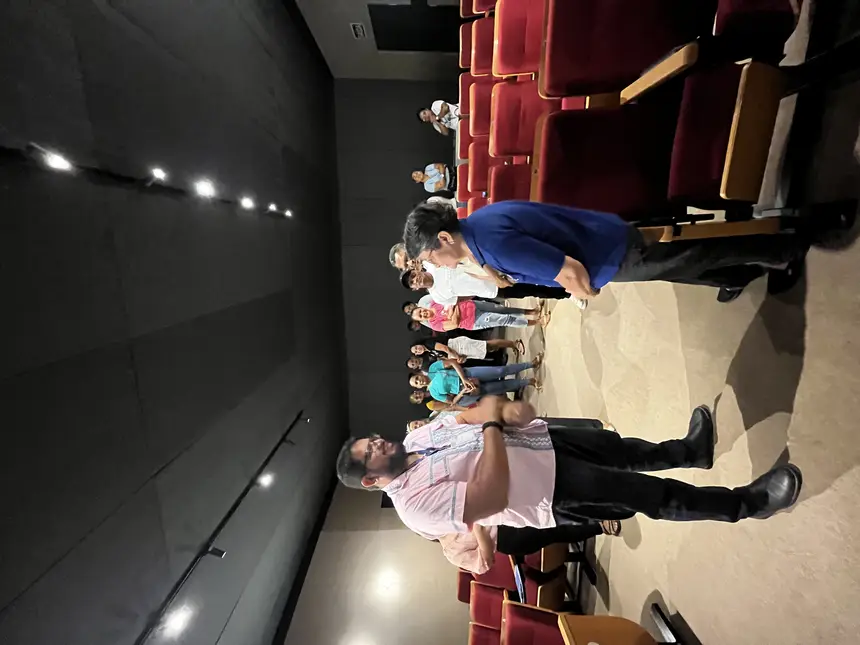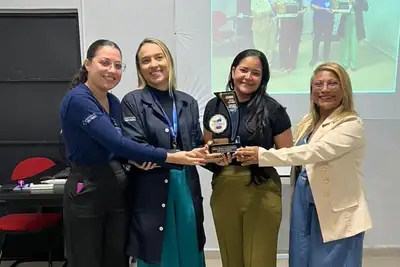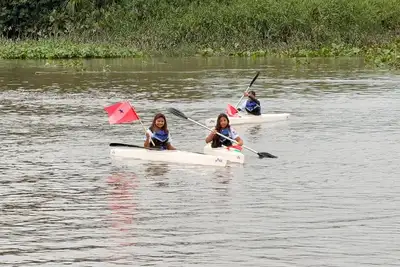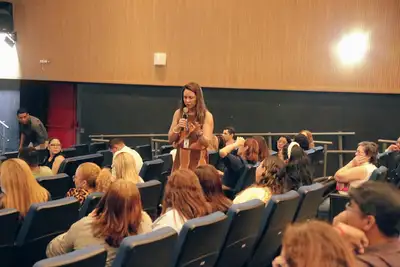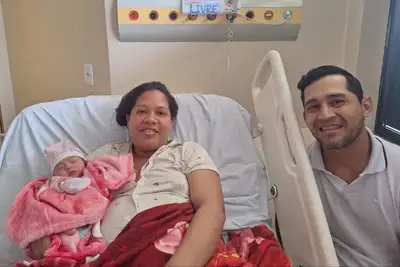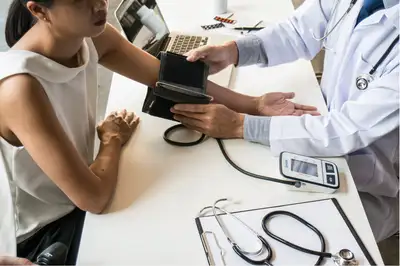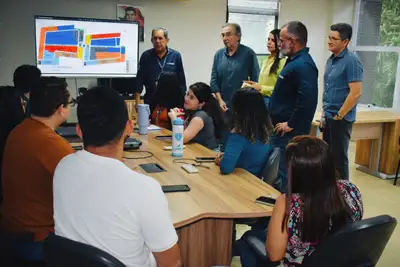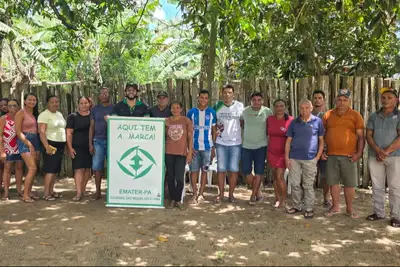Agronomists play a crucial role in the effectiveness of combating the Caribbean fruit fly in Pará
Educational actions, monitoring, and constant vigilance contribute to maintaining the export of fruits in the State
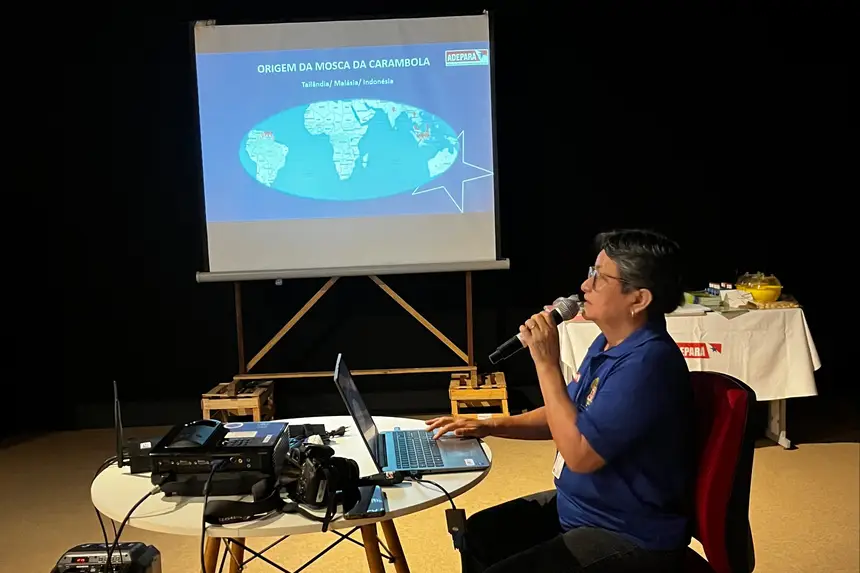
The Agricultural Defense Agency of the State of Pará (Adepará) has been making every effort to keep the territory of Pará free from the Caribbean fruit fly, an insect considered one of the main enemies of national fruit growing. In the region of the district of Monte Dourado, in the municipality of Almeirim, bordering Pará and Amapá, where the pest is restricted, vigilance is constant to prevent fruit shipments from areas with the presence of the pest from reaching Pará.
In the effort to prevent the spread of the fly, agronomists working in sanitary education visit communities with the aim of raising awareness about pest prevention measures. “This work is essential for the success of other actions developed to keep Pará free from this disease. It is very rewarding to bring this knowledge to more people, and community health and endemic agents play an important role in helping society in general to confront the fly,” emphasizes Agricultural Inspector, agronomist Gabriela Cunha, responsible for the sanitary education actions for the Caribbean fruit fly program in Pará.
In Cachoeira do Arari, in the Marajó archipelago, Adepará has just conducted two courses for training Multiplicator Agents of the National Program for the Eradication of the Caribbean Fruit Fly. The training took place in the urban area of the municipality with classes at the Museum of Marajó and in the rural area, at the Municipal School of Early Childhood and Fundamental Education Bom Jesus, in Retiro Grande.
In the courses, community health agents received training to transmit information about the insect and contribute to keeping the existing Citrus production centers in the State healthy, as well as the export of fresh fruits.
With 25 years of work, health agent Ocirene Santos has already created a bond with the population. “It’s a new topic because talking about food is talking about life. This training came to enhance our knowledge for health promotion. It’s new information that only adds to improve our community,” she emphasized.
Through active methodologies, application of questionnaires, lectures, and playful activities, the agents were trained to pass on information about the pest and thus contribute to plant defense.
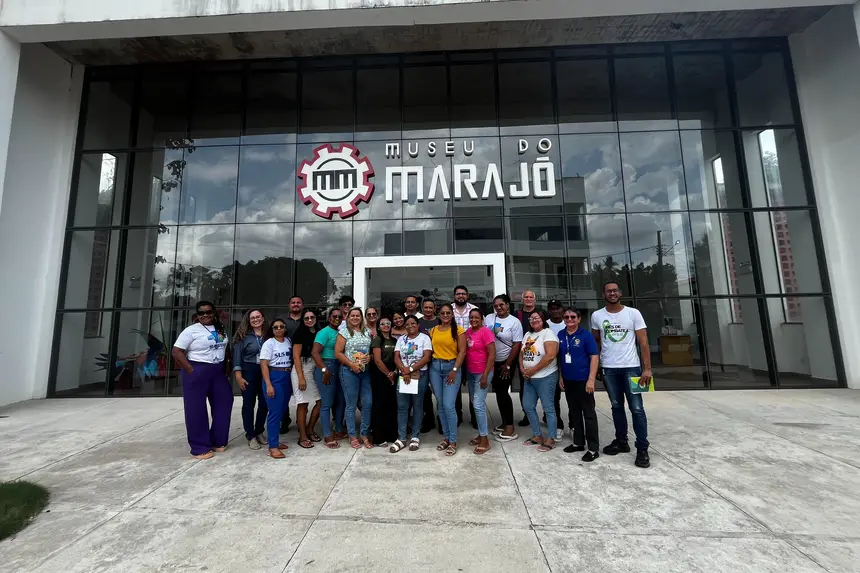
“The methodologies that were applied here will help the agents' work and also disseminate this information about these agricultural pests, since we are in a region with many crops. The dynamics used were very good, and everyone could participate,” said Júnior Santos, coordinator of surveillance and health in Cachoeira do Arari.
“The fly does not affect physical health, but since families work with the sale of fruits from the region, if the pest enters our territory, it can worsen the situation for families because they will not have the product, and this can impact the families' source of income, as many depend on fruit production,” said Michele Passinho, who has been a health agent in Camará for 14 years.
According to Olivar Valente, acting regional manager of Soure, in addition to Cachoeira do Arari, 18 other municipalities in the archipelago are quarantine areas for the Caribbean fruit fly. “This means that host fruits of the insect cannot be transported from here to other municipalities in the State, at the risk of spreading the pest,” he explained.
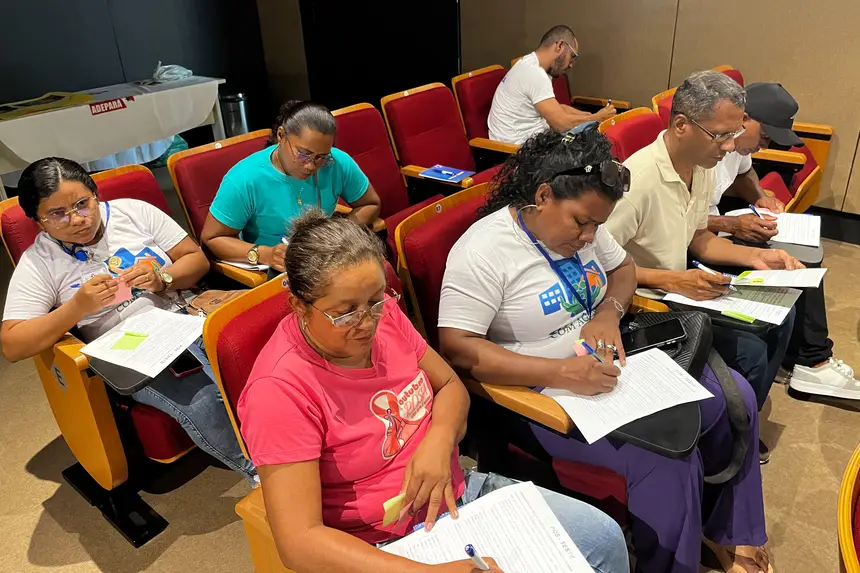
Cachoeira do Arari is a quarantine area for the insect. In the municipality, monitoring occurs every 15 days. “The surveillance work carried out by Adepará works with the installation of traps. Currently, there are three traps installed in the urban area of the city and two in the Camará region,” informed Agricultural Inspector Luiz Carlos, who has been working since the beginning of the program, 18 years ago.
In the training, the agents received valuable information from Agricultural Inspector Fátima Feliz Cavalcanti, a veteran of Adepará, who addressed the history of the program and the insect's cycle in her lecture. She also explained that collecting fruits from backyards and productive areas is essential to prevent the proliferation of the fly.
“Keeping the backyard clean is essential because the fly's cycle starts in the tree and ends on the ground, so if the fruit is not on the ground, it becomes more difficult for the insect to proliferate. Any suspicion should be reported to Adepará because the technical procedures are the responsibility of the agricultural defense inspectors,” said the agronomist.
The Soure Regional Office, which encompasses seven municipalities in Marajó, has already conducted training courses for community health agents and endemic agents in Salvaterra, Soure, and Cachoeira.
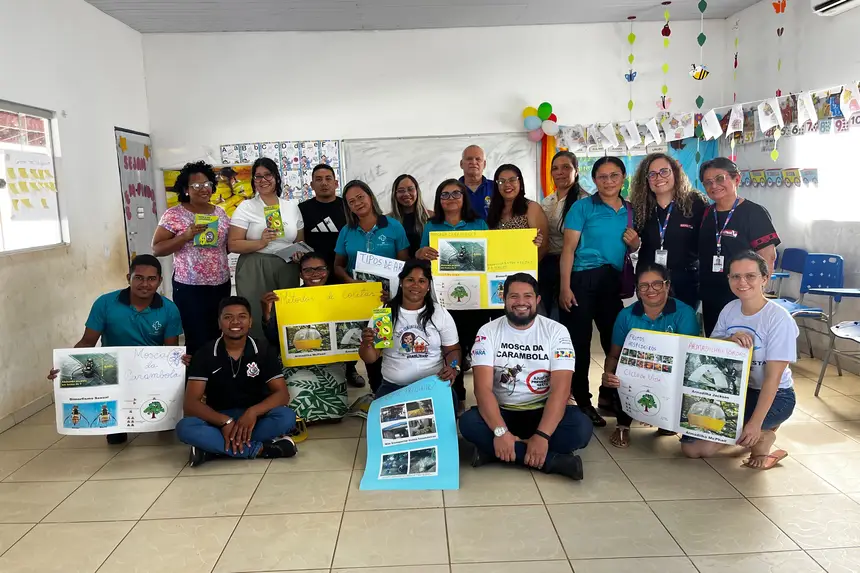
Simultaneous actions
In Pará, several simultaneous actions are being carried out for the control of the Caribbean fruit fly. While educational activities were conducted in Marajó, in the municipality of Capanema, Agricultural Inspectors supervised the Program, and in Monte Dourado, on the border with Amapá, training formed new combatants to act in spraying areas, collecting fruits, and burying hosts.
“With dedication and commitment, the staff have ensured the smooth progress of field actions, ensuring technical follow-up and maintenance of the traps installed in the region,” emphasized the Program Manager, Agricultural Inspector Adalberto Tavares.
Publication - The Program is one of the highlights of plant defense in the state of Pará. This month, a scientific article on the actions against the fly authored by agronomists from ADEPARÁ was published in the scientific journal Neotropical Entomology. The article evaluated the effectiveness of phytosanitary measures to reduce the insect population in Oriximiná, where the presence of the pest was recorded in 2023.
Monitoring took place in September, October, and November in a 182-hectare wooded urban area, where 317 specimens were captured, being 274 males and 43 females, with a higher capture in the Jackson trap (67.5%) than in the McPhail (32.5%). The fruiting phase was observed in 93.1% of the fruit trees with installed traps.
According to the Manager, the publication represents an important scientific milestone that reinforces the effectiveness of the actions of the National Program for the Eradication of the Caribbean Fruit Fly in Eastern Amazonia conducted by Adepará in the municipality of Oriximiná, which culminated in the eradication of the pest.
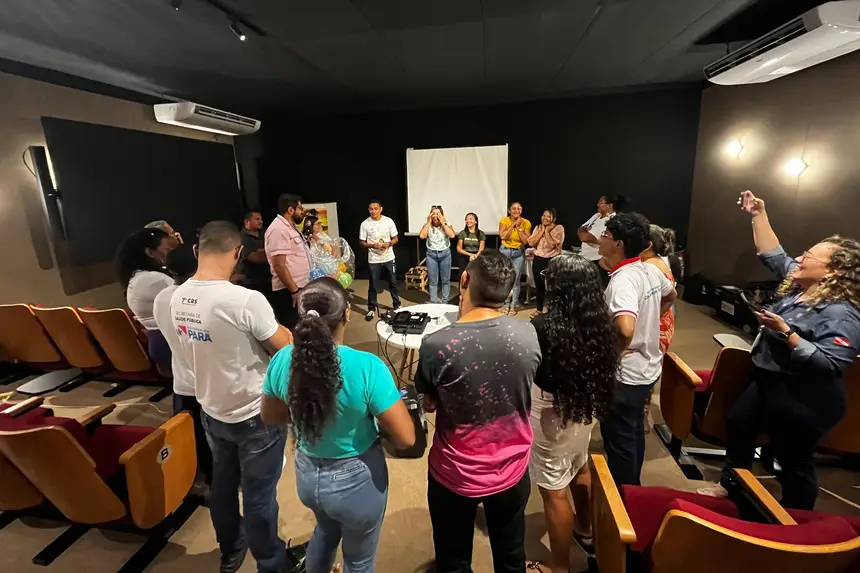
“The effectiveness of phytosanitary measures in controlling and declining the population of the Caribbean fruit fly (Bactrocera carambolae) under climatic conditions in Eastern Amazonia is an international recognition that values all the effort, dedication, and responsibility of the managers and colleagues from Adepará, Mapa, Embrapa, and Ufra in combating this quarantine pest,” emphasized Adalberto, who is an agronomist and leads the work on the fly in Pará.


